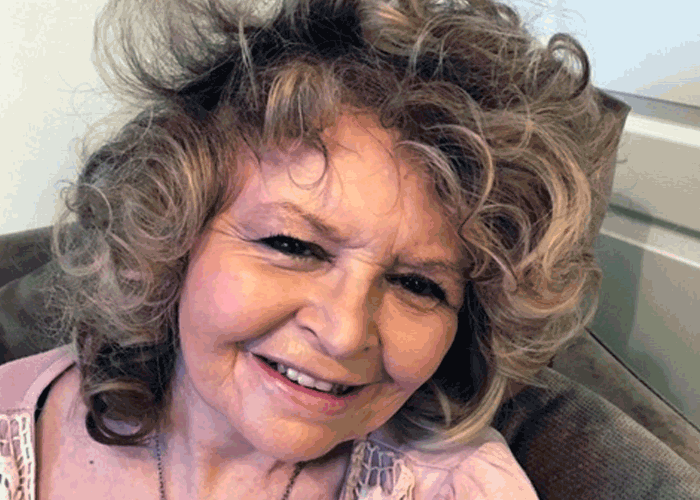Caerphilly Stroke Survivor raising awareness of risk factors.

BHF Cymru say better understanding of risk factors of heart and circulatory conditions could help save more lives.
Jacqui James from Caerphilly was just 30 years old when she had a stroke, which changed her life forever. In 1984 she was a social worker in London and didn’t recognise the symptoms which led to her stroke. Jacqui is raising awareness of the importance of knowing the symptoms for stroke and managing the risk factors, which are shared between many conditions such as angina or heart attacks.
Jacqui explains:
“I only recognise the symptoms leading to my stroke in hindsight. At the time I didn’t consider them at all. I had pretty intense headaches but I’d experienced headaches all my life so didn’t think anything of it. In the week before my stroke a colleague pointed out that the left side of my face just went into a kind of spasm, but I felt nothing and the conversation moved on. I also experienced visual disturbances in one eye and felt unwell so went home from work. The next day was Saturday and I couldn’t get out of bed I couldn’t move and I struggled to walk properly. I think that was my first transient ischaemic attack (TIA), also known as a mini stroke.
“I laid back down and went back to sleep. I woke up an hour later felt a little better, tried to stand up and fell over. By this time, I was awake and knew that something wasn’t quite right. I crawled to the lounge and rang a friend who said she would come over straight away. By the time she came over, everything had righted itself again. I was walking perfectly normally and feeling just fine. Even so, we decided I had better be checked out and my friend drove me to my nearest A & E. Department. I walked into A&E and that was the last time I ever walked normally.”
Jacqui has little memory of the actual stroke, initially there was even a suggestion that she might have MS, and it wasn’t until she’d been in A&E for almost 12 hours that doctors discovered the cause of her stroke was a blood clot that had travelled to her brain. Jacqui lost the use of the right side of her body and while her speech recovered, she has never regained her full physical ability and now, aged 66, permanently uses a wheelchair.
There are around 68,000 stroke survivors in Wales and the British Heart Foundation says better public awareness of the link between high blood pressure and heart attacks and stroke could improve adherence to treatments.
Jacqui continues:
“After my stroke I became very self-conscious if I walked in front of people. I was very aware of my disability and I noticed the difference in the way people treated me particularly when I used my wheelchair. My way of coping was to try and help other people with different disabilities. Helping others helped me.
I’ve used my experience to support disabled people in their own battles to live with their conditions. I was able to travel all over the world as a stroke survivor working alongside other disabled people to improve our human rights but more than 30 years on I still live with my stroke every day. Some days it gets the better of me but most days I win. I don’t let it control me.
“There’s so much more knowledge and better treatment and support available to stroke survivors now compared to when I had my stroke 35 years ago. I was not offered any mental health support and I had to find my own ways of coping as a young person with a new body image and all the emotions I was feeling at the time. Something like this can change your life forever and I think it’s important that people understand the risk factors and are aware of the symptoms as much as possible.”
Adam Fletcher, Head of BHF Cymru, said:
“A stroke is a life-threatening medical emergency. If you or anyone else is having a stroke, you should phone 999 for an ambulance immediately.
“Our BHF researchers across the UK are investigating how heart and circulatory conditions are connected and understanding the risk factors for these conditions is really important. The good news is that there are factors that you can do something about, including keeping blood pressure and cholesterol at healthy levels, being as active as possible, maintaining a healthy body weight and, if you smoke, giving it up. If you have diabetes, aim for good control of your blood sugar levels. Heart and circulatory diseases can have the same risk factors and one can lead to another. That’s why our research starts with your heart, but doesn’t stop there.”
For more information on BHF funded research and how it’s all connected visit www.bhf.org.uk




